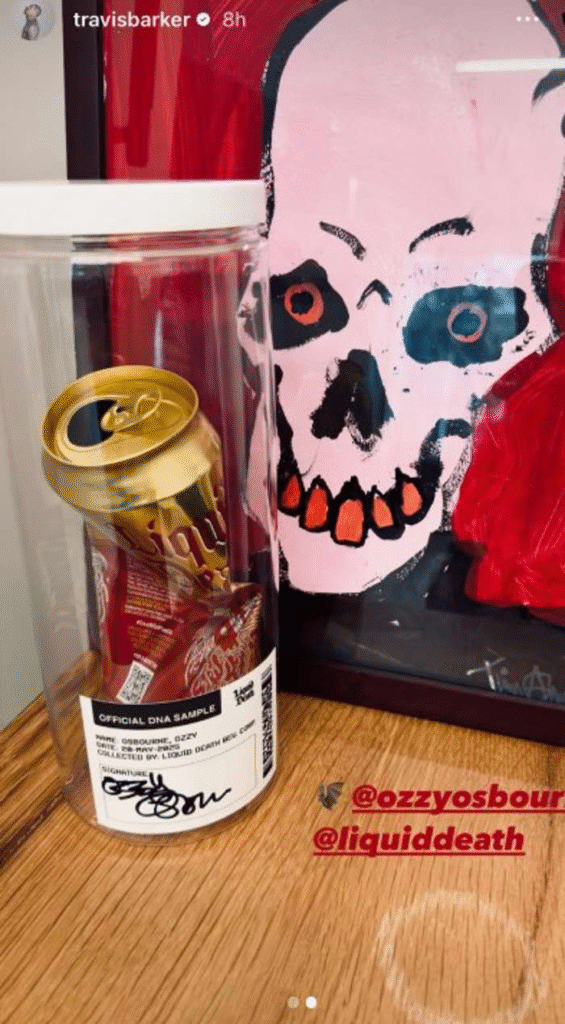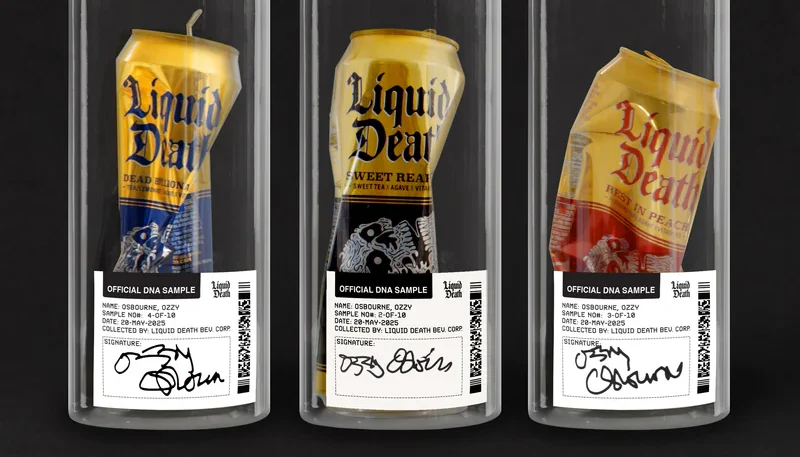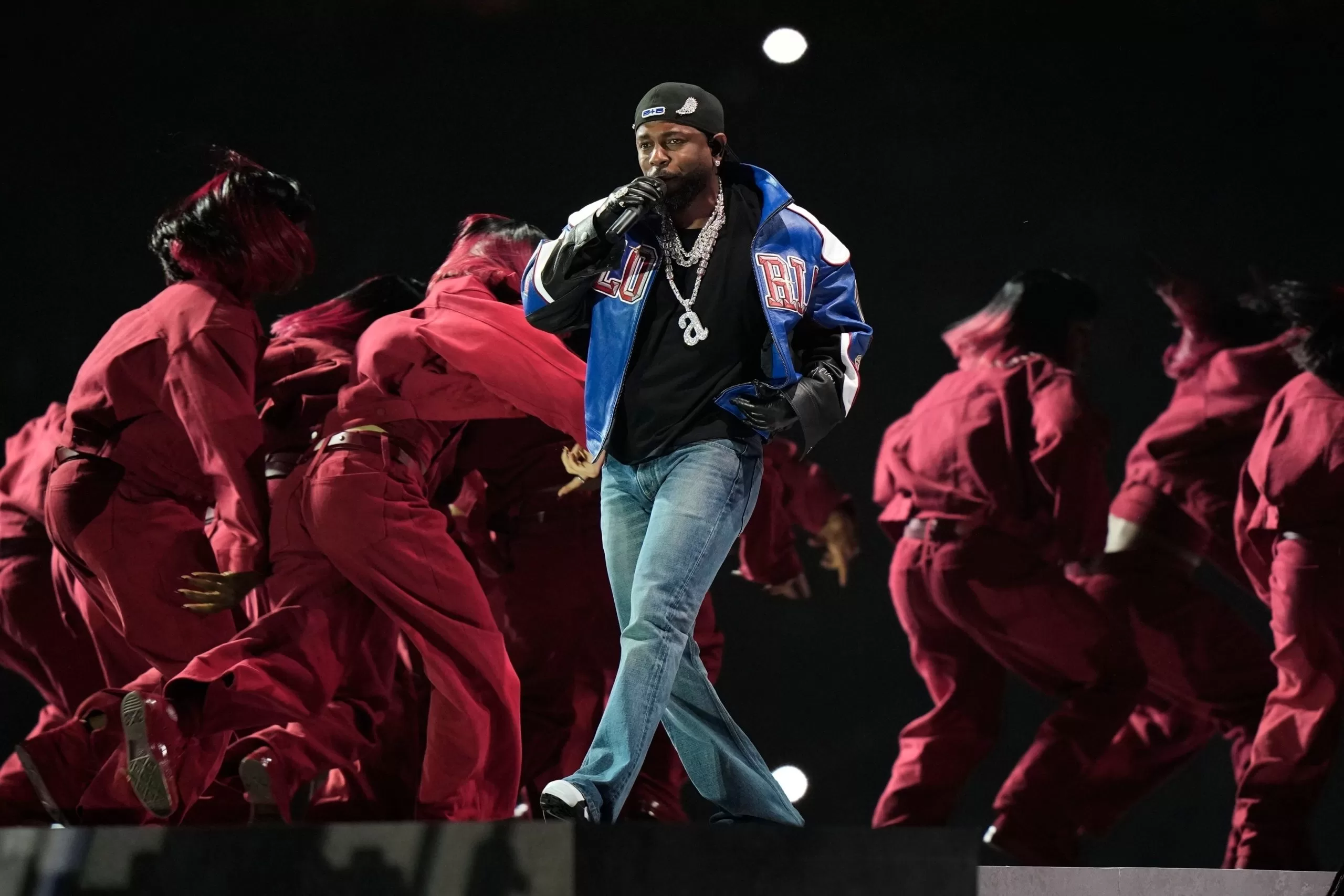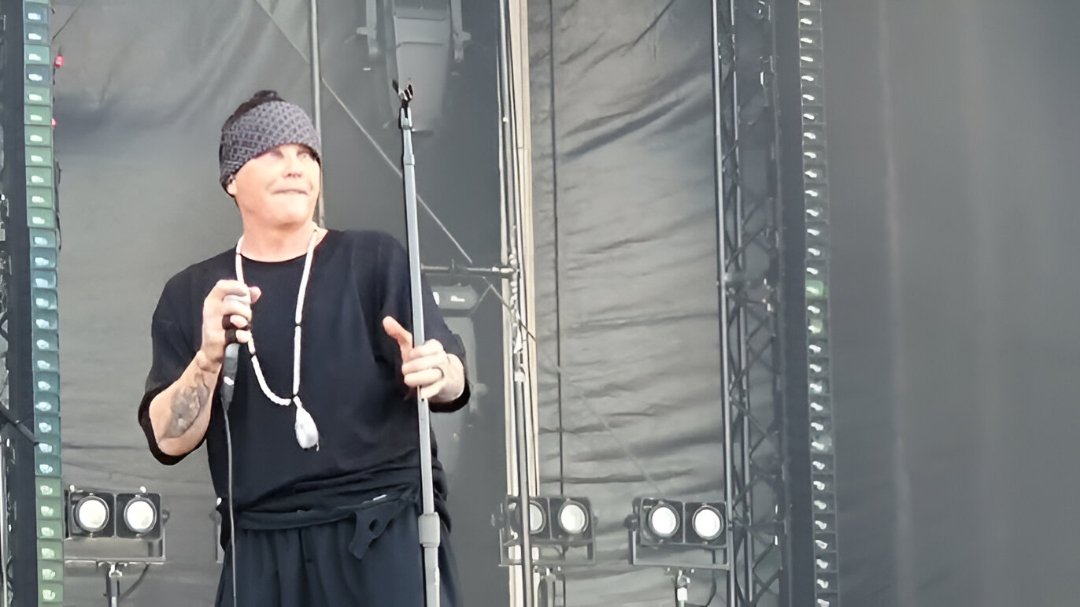Can music memorabilia survive another industry disruption? While streaming decimated physical sales and NFTs promised digital ownership, Ozzy Osbourne just launched the strangest collectible campaign in rock history. His partnership with Liquid Death produced ten lab-sealed iced tea cans containing trace amounts of his actual DNA, each selling for $450. All sold out immediately, proving fans will pay premium prices for authenticity—even when it’s literally encoded in saliva.
The “Infinitely Recyclable Ozzy” campaign sounds like rejected Black Mirror dialogue, but the execution was surprisingly sophisticated. Each can contained iced tea personally consumed by Osbourne, with his saliva preserved through laboratory sealing processes. Ten autographed units represent the entire production run.
Osbourne embraced the absurdity with characteristic irreverence: “Clone me, you bastards.”
Blink-182‘s Travis Barker announced his purchase via Instagram Story, sharing photographic proof of his $450 investment. Barker’s participation legitimized the campaign beyond novelty value, placing him among an exclusive group of ten collectors worldwide. His endorsement carried weight—this is someone who survived a plane crash and understands the fragility of legacy.

This represents more than celebrity cash-grab marketing. Traditional memorabilia relied on physical proximity: signed photos, worn clothing, used instruments. Ozzy’s DNA cans push that intimacy to molecular levels, reflecting how parasocial relationships evolve in creator economy culture. Your TikTok following might not care about vinyl records, but they understand personal branding at biological levels.
The campaign succeeded because it acknowledged its own ridiculousness while delivering genuine exclusivity. Unlike mass-produced merchandise , these cans offered verifiable scarcity with scientific authentication. This mirrors how Surge’s $2.5M festival sales proved that embracing brand weirdness creates deeper consumer connections than polished corporate messaging. Industry observers called it one of the “strangest marketing campaigns in recent music history,” but strange doesn’t mean ineffective.
Rock memorabilia just entered the biotechnology era, and Barker’s purchase signals that established artists recognize the cultural shift. When drumming legends invest in molecular collectibles, we’re witnessing music merchandising’s next evolution.


























